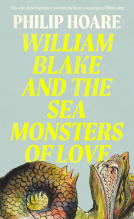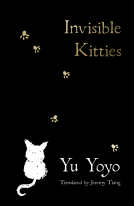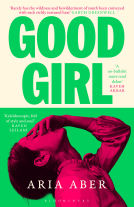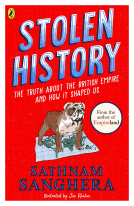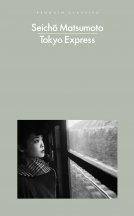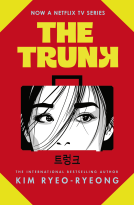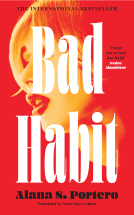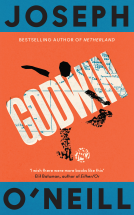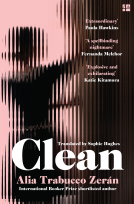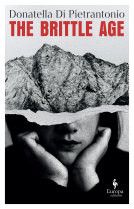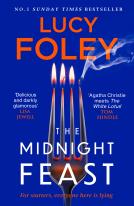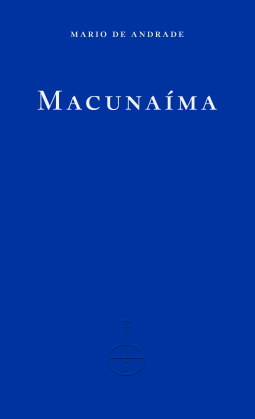
Macunaima
by Mario de Andrade, translated by Katrina Dodson
This title was previously available on NetGalley and is now archived.
Send NetGalley books directly to your Kindle or Kindle app
1
To read on a Kindle or Kindle app, please add kindle@netgalley.com as an approved email address to receive files in your Amazon account. Click here for step-by-step instructions.
2
Also find your Kindle email address within your Amazon account, and enter it here.
Pub Date 26 Apr 2023 | Archive Date 26 Apr 2023
Fitzcarraldo Editions | Fitzcarraldo Classics
Talking about this book? Use #Macunaima #NetGalley. More hashtag tips!
Description
Here at last is an exciting new translation of the modernist Brazilian epic Macunaíma, by Mário de Andrade. This landmark novel from 1928 has been hugely influential. It follows the adventures of the shapeshifting Macunaíma and his brothers as they leave their home in the northern Amazon for a whirlwind tour of Brazil, cramming four centuries and a continental expanse into a single mythic plane. Having lost a magic amulet, the hero and his brothers journey to São Paulo to retrieve the talisman that has fallen into the hands of an Italo-Peruvian captain of industry (who is also a cannibal giant). Written over six delirious days –the fruit of years of study – Macunaíma magically synthesizes dialect, folklore, anthropology, mythology, flora, fauna, and pop culture to examine Brazilian identity. This brilliant translation by Katrina Dodson has been many years in the making and includes an extensive section of notes providing essential background information for this magnificent work.
A Note From the Publisher
This is the first title in Fitzcarraldo Editions' Classics list.
Advance Praise
‘Macunaíma is above all a vision of mythical Brazilian consciousness, a picaresque epic of birth, triumph, decline and death.’ - New York Times
'Electrifying and perplexing, this cornerstone of Brazilian literature shouldn’t be missed.' - Publisher's Weekly, starred review
Available Editions
| EDITION | Paperback |
| ISBN | 9781804270264 |
| PRICE | £14.99 (GBP) |
Available on NetGalley
Featured Reviews
 Reviewer 876149
Reviewer 876149
Mário de Andrade’s 1928 novel’s considered a classic, its author often referred to as the “pope of Brazilian modernism” who’s also feted for his poetry and affiliations with Brazil’s literary and artistic avant-garde. Macunaíma’s a challenging, picaresque saga, an oddly mournful piece despite copious episodes of ribald, scatological humour. It’s also laced with scenes that reek of misogyny, racism and/or xenophobia. It’s comparatively short but so dense that this new translation’s carefully framed by extensive background notes and discussion material; while its frenetic pace seems to mirror 1920s Brazil, an era marked by rapid change, social instability and economic turmoil. At its heart is anti-hero Macunaíma based on a folk hero from a series of stories circulated by the Pemon people of the Amazon rainforest. A collection Andrade discovered via the work of German explorer and ethnographer Koch-Grünberg. Macunaíma’s a trickster figure; a lazy, amoral, shape-shifter who uses his abilities to gratify his, predominantly sexual, desires. His first transformation takes place in childhood, allowing him to become full-grown so he can have sex with his older brother’s girlfriend.
Andrade’s plot’s relatively simple, it’s an Odyssey-like tale centred on Macunaíma and his brothers. After Macunaíma accidentally murders his mother, he leaves his home in the forest, together with his remaining family. His travels lead to an ill-fated relationship with Queen Ci, an Amazonian warrior with characteristics drawn from the pages of science fiction. A series of misadventures results in Ci’s death, Macunaíma only has her amulet as a reminder of their love, but even this is soon lost. So begins an epic quest for its recovery that brings Macunaíma to the rapidly-industrialising city of São Paulo. A quest that will confront the small band of travellers with a series of fantastical creatures from demons and evil spirits to giant worms and monstrous snakes and then to the cannibalistic giant whose stash conceals Ci’s amulet – a giant whose name also connects him to São Paulo’s growing Italian immigrant community. As Andrade’s story unfolds, it’s increasingly formed from a collage of material gleaned from a mish-mash of sources from popular culture to Christianity to fairy and folk tales - sometimes close to their original forms, sometimes deliberately skewed or altered. Nothing in Andrade’s novel is entirely reliable even the meticulously detailed flora and fauna are often located in all the wrong places.
Accounts of Andrade’s work link his approach to his perception of Brazil’s national culture as something inorganic and incoherent, cobbled together from a range of local and international influences particularly from Europe and the legacy of its Portuguese colonisers - some of whom have minor roles in his novel. Macunaíma himself, a hero without a character, can be seen as a reflection of this lack of a unified identity; and Andrade frequently uses his hero’s experiences to parody and satirise aspects of Brazilian society from rich, indulgent communities of women to burgeoning capitalism, and aspirational artistic communities with their sights set on painting in places like Paris. In an inversion of standard narratives of the time and a growing fascination with the so-called “primitive,” Macunaíma - whose origins mark him out as prime fodder for those seeking an “authentic” Brazil - becomes a kind of anthropologist intent on interpreting “Paulista civilisation.” And Macunaíma’s bizarre metamorphosis from Black to white seems to be indirectly critiquing Brazilian ideas about race – perhaps sparked by Andrade’s own mixed-race identity.
Andrade has a fairly unique style, aiming for the rhythmic and sonorous, he combines features of oral storytelling with slang, poetry and song; formal Portuguese is broken up with smatterings of indigenous languages as well as terms taken from Bantu and Yoruba which invoke the many Brazilian descendants of slavery. An approach to language that was seen as ground-breaking when this originally appeared, both novel and controversial. It’s a very difficult piece to assess. It’s audacious but problematic; absurd and boundary-pushing yet sometimes deeply, offensively conservative. I raced through some chapters and crawled through others. But as an insight into Brazilian literature and cultural history I found it consistently compelling. I was also impressed by Katrina Dodson’s fluid translation and reliant on her comprehensive, thoughtful notes and commentary. Introduced by John Keene, this is the first entry in Fitzcarraldo’s new classics list.
Readers who liked this book also liked:
Donatella Di Pietrantonio
General Fiction (Adult), Literary Fiction, Mystery & Thrillers
